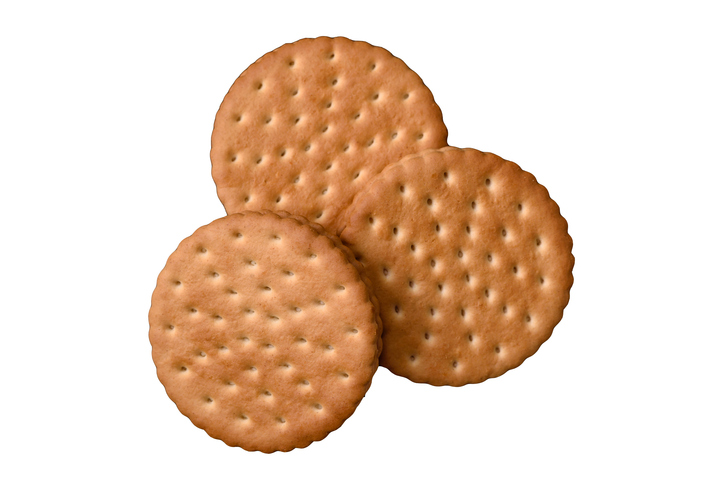Is Cracker A Racial Slur? Breaking Down The Bigotry

Source: Dmytro Chernykov / Getty
In the intricate tapestry of racial epithets that mar American history, there exists one word that may seem innocuous at first glance but carries a heavy history of oppression and racism: “Cracker.” Despite its relative lack of prominence in discussions compared to other racial slurs, the term “Cracker” holds a deep-seated historical significance and carries weighty implications.
In 2013, the term “Cracker” gained renewed attention in the American consciousness when Rachel Jeantel testified in the George Zimmerman trial. Jeantel recounted her phone conversation with Trayvon Martin just before Zimmerman fatally shot the 17-year-old. Martin expressed concern upon noticing a “creepy-ass cracker” following him as he walked back from purchasing items at the store.
Jeantel said she did not view the term as a racial slur although prosecutors tried to push her to admit that it was indeed pejorative.
The term “Cracker” carries a complex backstory.
Historians believe that “Cracker” originated in the United States, particularly in the South, although its exact origins are debated. During an interview with NPR, historian, writer and author Jelani Cobb, who has done extensive research on the term, suggested that the word emerged in the 18th century in the Antebellum South. Initially, “Cracker” referred to poor, white farmers and laborers, particularly those of Scotch-Irish descent, who worked in the agricultural fields of the Southern states like Virginia, Georgia and Maryland. The term possibly derived from the word “whip cracker,” in reference to individuals of that particular community who would frequently move livestock using whips as a form of labor.
However, over time, the meaning of “Cracker” evolved to encompass a broader derogatory connotation. It became synonymous with ignorance, backwardness and perceived inferiority, perpetuating stereotypes about poor white Southerners as uneducated, criminals and uncultured.
“Over the course of time it came to represent a person of lower caste or criminal disposition, in some instances, was used in reference to bandits and other lawless folk,” Cobb said.
There is also evidence that “Cracker” was being used as a derogatory term in the late 1500s. In the Shakespeare play, King John, released in the 1590s, a character can be seen using “Cracker” as an insult to describe Scotch-Irish immigrants as pompous and overly opinionated.
“What cracker is this same that deafs our ears with this abundance of superfluous breath?” a line from the play read, according to NPR.
The Florida “Crackers” may have shaped the negative connotation behind the word.
From 1821 to 1861, Florida underwent a profound evolution spearheaded by the “Cracker” community, according to historian James M. Denham. Initially, a sparsely inhabited territory under Spanish rule, the state transformed into an American-dominated agricultural hub. This period witnessed a surge in immigration, boosting Florida’s population to around 160,000. Settlers arrived from diverse backgrounds, including the upper South, northern states and Europe, but a significant portion hailed from neighboring states. Those migrating from Georgia, Alabama, Tennessee and South Carolina sought fertile lands for farming and animal husbandry, imprinting Florida with their cultural heritage.
“Florida crackers, and generally all southern ‘plain folk,’ shared a strong adherence to popular democracy, a hatred of Indians, and a firm sense of racial superiority over blacks, who they believed were only fit for slavery,” Denham noted in his controversial 1993 article,The Florida Cracker Before The Civil War As Seen Through Travelers’ Accounts.
“They possessed a powerful sense of family and extended kin networks, which had important ramifications for relations with neighbors and outsiders. They had a vigorous streak of individualism and resolve that derived from living on the isolated frontier.”
The reclamation of the term “Cracker” by white individuals mirrors the ongoing effort within the Black community to reclaim the N-word, a struggle deeply rooted in the history of slavery and the Jim Crow Era. The word was used to demean, villainize and degrade Black people. In both instances, there is a deliberate attempt to assert empowerment and foster pride by employing these terms within their respective communities.
As we delve into conversations about race and identity, it’s crucial to handle language with sensitivity, caution, and a deep awareness of its historical context and consequences. For many white individuals, certain terms can be deeply offensive, particularly for those who do not wish to associate with or perpetuate the racism and bigotry rooted in the Antebellum South. Similarly, the use of the N-word carries significant weight for Black community members who bear the pain and offense of its historical connotations and who may not see it as an endearing term. It’s essential to approach discussions about these terms with empathy and understanding, recognizing the impact they can have on individuals from different racial backgrounds.
SEE ALSO:
Video: ‘Libs Of TikTok’ Karen Gets Laughed At By College Students While Failing To Define ‘Wokeness

The post Is Cracker A Racial Slur? Breaking Down The Bigotry appeared first on NewsOne.
The post Is Cracker A Racial Slur? Breaking Down The Bigotry appeared first on Black America Web.


